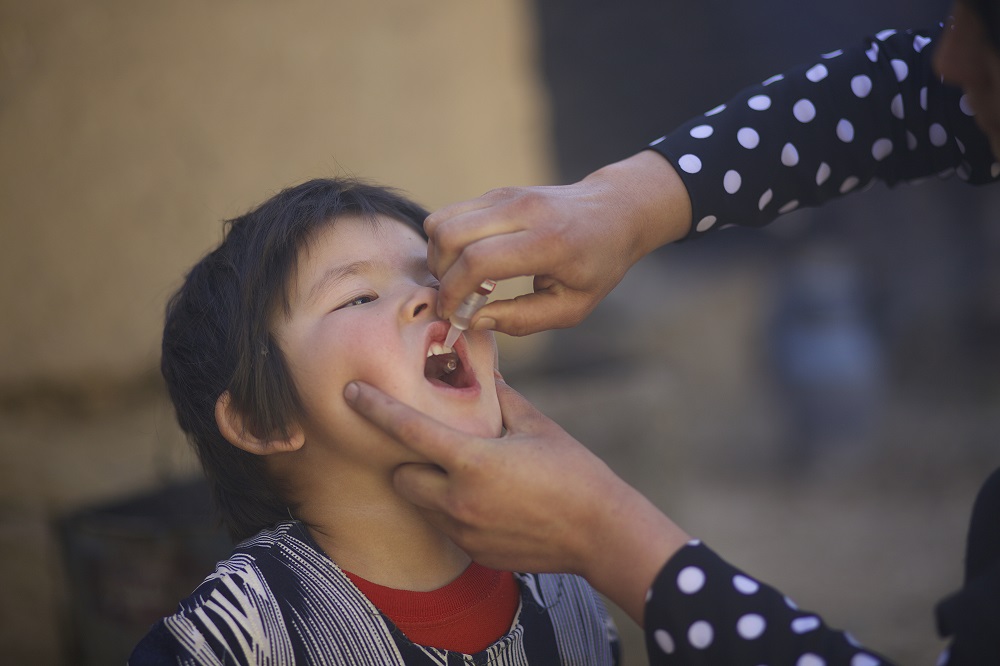Polio Director for the Eastern Mediterranean Region calls for people at all levels to act to end polio
 Credit: WHOAmman, 24 October 2022 –On World Polio Day, marked on 24 October across the world, countries around the world are stepping up efforts to end polio.
Credit: WHOAmman, 24 October 2022 –On World Polio Day, marked on 24 October across the world, countries around the world are stepping up efforts to end polio.
This year’s theme for the day has been ‘Together We End Polio’ and emphasis has been on how polio eradication efforts also play a key role in improving both children’s and mothers’ access to vaccines and other health and nutritional services.
At present, only 2 countries worldwide remain with indigenous transmission of wild poliovirus type 1 (WPV1) – Afghanistan and Pakistan. In Afghanistan, in 2022, the WPV1 has left 2 children paralyzed, whereas in Pakistan, 20 children have been affected this year.
So far, 33 countries have outbreaks of variant polioviruses, which can also cause paralysis in children. These include the United Kingdom (UK) and United States of America (USA), Israel and Malawi. Yemen and Somalia are among high-risk countries where variant polioviruses continue to circulate incessantly.
Despite the circulation of WPV1 and the variant polioviruses, the world and Eastern Mediterranean Region have made incredible progress. Since 1988, when the Global Polio Eradication Initiative (GPEI) was set up, polio cases have plummeted by 99% from an estimated annual total of 350 000. Additionally, governments and communities in both Afghanistan and Pakistan have been showing their highest levels of commitment towards polio eradication.
In a live interview with the WHO’s Regional Office for the Eastern Mediterranean on World Polio Day, Dr Hamid Jafari, Polio Director for WHO’s Eastern Mediterranean Region emphasized everyone has a role to play: caregivers must make concerted efforts to have their children vaccinated during immunization campaigns or at health facilities; and policymakers and donors can support the polio eradication programme, which also strengthens the response to health emergencies such as COVID-19. He added the media also has a role to play in raising awareness around the benefits of polio vaccination.
Dr Jafari also stressed that polio is a health emergency of international concern, and that while countries with outbreaks and indigenous transmission of poliovirus need to urgently stop transmission, countries that haven’t been affected yet still need to be prepared to detect polio and respond to outbreaks.
Dr Jafari thanked polio health workers for the sacrifices they make to reach every child possible, in addition to donors who have stepped up efforts to end polio. At a recent pledging event, organized by the GPEI, at the World Health Summit in October 2022, donors committed to supporting eradication efforts with US$ 2.6 million, which will go towards reaching more vulnerable children with vaccines among other crucial activities.
Listen back to the interview at the @WHOEMRO twitter account: https://twitter.com/WHOEMRO/status/1584157258321383424 (From 14 min onwards)




